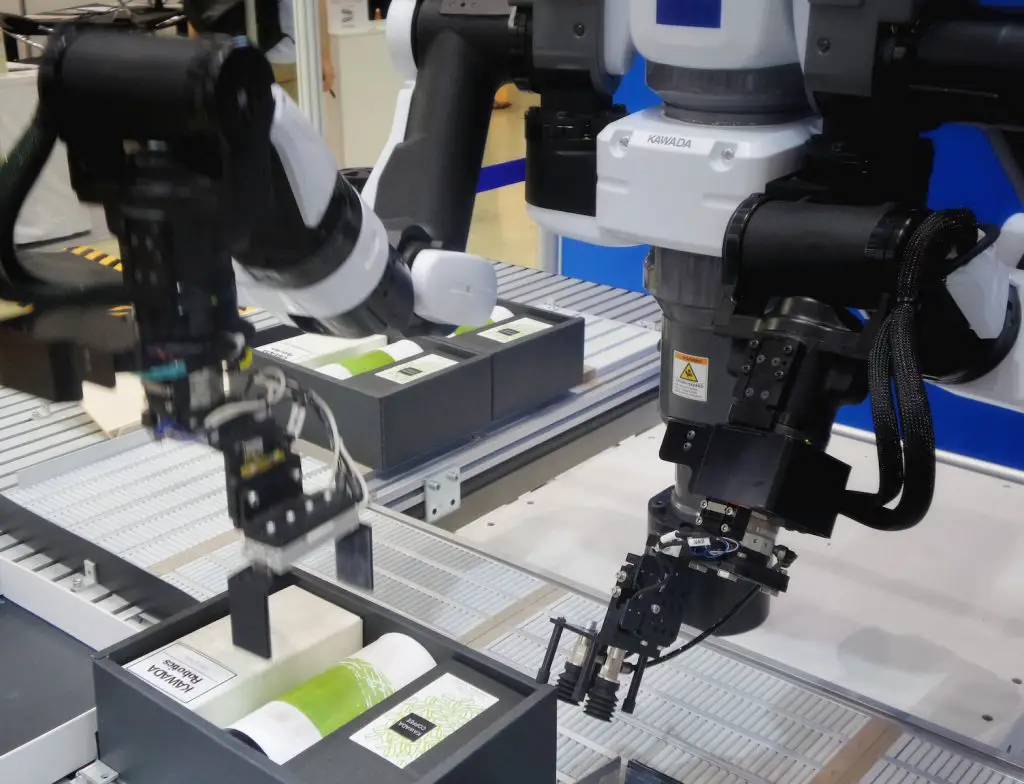This post may contain affiliate links which means I may receive a commission. Learn more on my Privacy Policy page.
Industry 4.0 seeks to revolutionize manufacturing processes via digitalisation and automation, connecting physical with digital systems to take data-driven decisions.
Real-time data is at the core of this revolution, enabling companies to optimize operations and achieve efficiency with ease, remain competitive, and attract younger talent.
Manufacturing processes
Manufacturing 4.0 technology not only helps companies increase productivity, but it also makes them more cost-competitive. Customers demand personalized products at an affordable price delivered quickly; therefore requiring an advanced supply chain management system that optimizes logistics and document processing.
Advanced robotics, IoT platforms, SaaS platforms and machine learning technologies can help make this process more efficient. When used together they enable predictive maintenance, process automation and real-time data analytics; which allow manufacturers to predict equipment failures quickly and make necessary changes quickly – effectively becoming centers of innovation with smarter production and digital ecosystems in their factories.
Digital transformation
Keep in mind that Industry 4.0’s primary aim is to develop a high-tech ecosystem that optimizes business processes and achieves efficiency – this includes automation as well as recordkeeping and other aspects of operations management.
Integrating IT and OT, industrial cybersecurity technologies (visual monitoring of critical facilities), advanced robotics, mixed reality and analytics (descriptive, diagnostic, predictive and prescriptive). It enables more informed views into product life cycle and supply chains as well as Real-Time Applications.
Companies must invest early on in using the tools of Industrie 4.0 to transform their manufacturing processes and capitalize on its benefits.
Software Solutions
Intel offers everything from low-power compute that expands AI’s reach, edge servers that support advanced analytics, distributed HPC systems and more to bring your Industry 4.0 vision to life. This fourth industrial revolution connects digital and physical worlds in order to create more intelligent manufacturing environments.
Productivity increases as automation, predictive analytics and machine learning take over repetitive tasks from human workers. Compliance with regulations is made simpler thanks to automated tracking and quality inspection systems; NPIs move more swiftly with fast batch changeovers and automatic reporting; all this leads to greater profitability for manufacturers.
Automation
As soon as you integrate these technologies, your production line will become more efficient – reduced machine downtime, faster production lines, accurate tracking and reporting, as well as automated decision making will become hallmarks of efficiency.
Automation allows your human team to concentrate on more essential tasks, increasing both productivity and profits.
Traditional manufacturing relies on knowledge being contained within silos (facilities or machines), while Industry 4.0 technology makes it possible for information and intelligence to flow seamlessly throughout your organization, leading to better decision-making, product/service quality enhancement and being able to scale production up or down depending on market demand.
Internet of Things (IoT)
IoT (Internet of Things) is a cornerstone technology of Industry 4.0, providing for data exchange between digital and physical assets on a network in real-time, which then can be analysed and applied as actionable insights to enhance productivity, efficiency, service capabilities and business models.
Augmented reality (AR), which involves superimposing digital content onto physical objects, is another integral element of Industry 4.0. AR can be used to display real-time IoT data, digitalized parts and repair and assembly instructions as well as training material – which can help increase employee productivity while saving time; reduce downtime; improve customer support services.
Big data analytics
Industry 4.0 technologies enable manufacturers to meet various goals, such as cost-efficiency and increased quality. Achieve these aims is made possible through automation, real-time data processing, machine learning and other factors.
Big data analytics can be used to detect patterns that predict machine failures and enable manufacturers to reduce downtime, saving both time and money in the process. This could potentially save both time and money when used effectively.
Reduced downtime allows these systems to enhance customer service by offering more tailored products and services, increasing production process productivity, increasing revenue, as well as creating individual production processes tailored to individual customer requirements that boost productivity and revenue growth. Companies adopting Industry 4.0 tactics may also benefit by streamlining supply chains while opening new business models.




